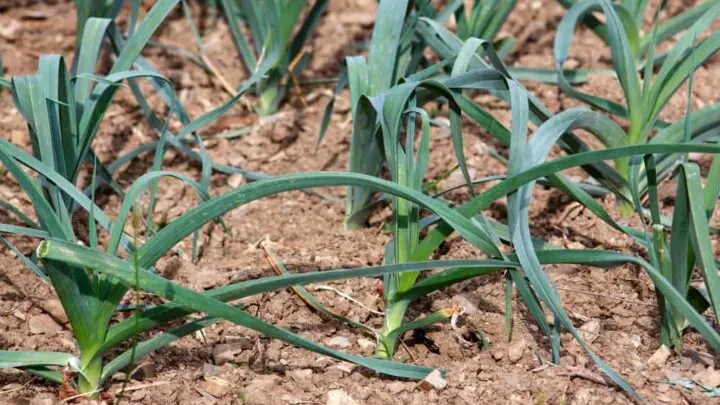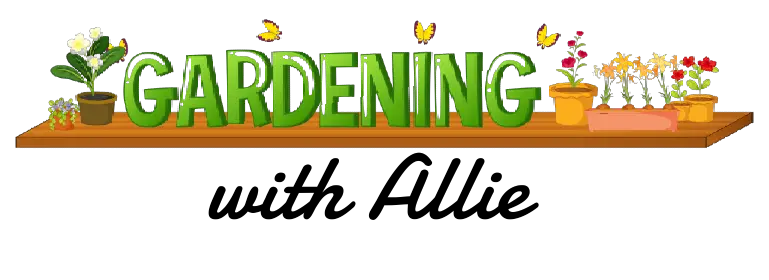Gardeners use various foods and products as compost and fertilizers for their plants. Interestingly, many gardeners have used Epsom salts as a fertilizer for their magnesium and sulfur-loving plants. Since onion plants are known to need a decent amount of sulfur to grow and thrive, many gardeners wonder if onion plants will like Epsom salts.
Epsom salts can be a great addition to your onion plant’s soil and most onion plants like it. This is because Epsom salts contribute a decent amount of sulfate to the soil, which onion plants thrive on. It is important to note that this Epsom salt should be diluted in water before use on all types of plants, however.
This article will explain how to properly use Epsom salt as a fertilizer for onion plants. We will also be describing how Epsom salt can affect and benefit plants. Let’s get to it!

What is Epsom Salt?
Epsom salt is simply a crystallized version of the chemical compound magnesium sulfate. Specifically, Epsom salt comprises 10% magnesium and 13% sulfur. This compound provides many health benefits for people, but many gardeners do not know that Epsom salts can also be used as a fertilizer for plants.
Epsom salt can be great for plants that benefit from high amounts of magnesium and sulfate in the soil. This makes Epsom salt an excellent fertilizer for tomatoes, cucumbers, roses, peppers, and, of course, onions. Epsom salt must be diluted in water before being used on plants to work properly.
How Does Epsom Salt Affect Plants?
When used properly, Epsom salt can benefit magnesium and sulfur-loving plants. This means that using Epsom salts as fertilizer can have multiple benefits on the health, growth, and development of plants that need these nutrients.
To start with, Epsom salt is rich in magnesium. Having high amounts of magnesium can aid in proper seed germination and forming strong walls on stems and leaves in many different types of plants. Magnesium can also help plants absorb the sulfur present in Epsom salts, which is great for sulfur-loving plants. Both of these benefits positively impact onion plants.
Additionally, Epsom salts are high in sulfur. Sulfur is beneficial to plants because it is essential in processes that allow plants to grow and develop properly. As a result, giving your onion plant Epsom salts will usually result in a healthy plant that has grown and developed properly.

How Much Epsom Salt Should You Use On Onion Plants?
When it comes to using Epsom salts onion plants, a little goes a long way. As a result, you should always dilute Epsom salt in the water before using it on your onion plants. This will activate the magnesium sulfate and ensure that the Epsom salt is evenly distributed around your plants. Here is a table of how much Epsom salt you should use per the water you need.
| Amount of Epsom Salt | Amount of Water |
| ¼ Tablespoon of Epsom salt | 1 Quart of water |
| ½ Tablespoon of Epsom salt | ½ Gallon of water |
| 1 Tablespoon of Epsom salt | 1 Gallon of water |
| 2 Tablespoons of Epsom salt | 2 Gallons of water |
Following this chart will ensure that your onion plants will benefit from Epsom salt’s nutrients without overloading them with magnesium and sulfur. Following these guidelines will also prevent the soil around your onion plants from becoming too acidic. This is important because onion plants only like neutral or slightly acidic soil between 6.0 and 7.0 pH. You should lightly spray this solution onto the soil around your plants for the best results.
How Often Should You Give Your Onion Plants Epsom Salt?
It is best to lightly spray the soil around your onion plants with this solution about once a month. Placing Epsom salt solution around your onion plants more often could make the soil too acidic. Additionally, spraying your plants with Epsom salt solution frequently could lead to a buildup of too much magnesium and sulfur in the soil, which could also harm your plants.

Things To Consider
There are some other things that you may want to consider when it comes to using Epsom salt on onion plants. These things include whether or not too much Epsom salt is bad for plants and if Epsom salt affects the flavor of onions. Here are some additional things to consider about using Epsom salts on onion plants.
Is Too Much Epsom Salt Bad For Plants?
Yes, using too much Epsom salt is bad for plants and can even damage them. In onion plants, using too much Epsom salt can lead to a soil that is too acidic, which can lead to problems with the plant’s growth and development.
Additionally, using too much Epsom salt around your plants can lead to magnesium and sulfur levels in the soil that are too high. Although many plants benefit from these nutrients, too much sulfur and magnesium can lead to deficiencies in other essential nutrients such as nitrogen and potassium. This occurs because high levels of sulfur and magnesium can lead to a plant having a more difficult time absorbing nutrients rather than helping.
When plants develop a deficiency in a vital nutrient, they tend to have many problems in their growth and development. Often a plant will develop yellow or wilting leaves or stems. The good news is that if you follow our water dilution chart in this article, you will not experience any problems due to Epsom salt.
How Does Epsom Salt Effect The Taste Of Onions?
Properly fertilizing your onion plants with Epsom salt enhances their flavor and makes them taste better. As a result, many gardeners will use Epsom salt solution on their onion plants simply for this benefit. This effect of Epsom salt has also been said to work on garlic plants.

Hi there, my name is Allie and welcome to my blog; GareningWithAllie!
Much of what you see written here is just our personal experiences with gardening. Along with the content I write here, there is also a unique collection of gardening topics covered by some of our close friends. I hope you find everything you read here to be helpful, informative, and something that can make your gardening journey the most lovely experience ever! With that said, Happy Gardening!
